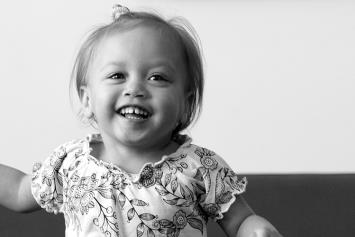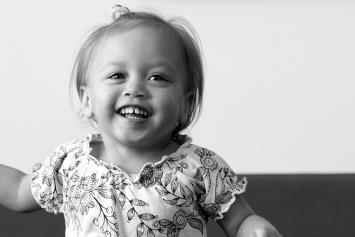Pediatric Feeding Disorder
It is estimated that Pediatric Feeding Disorder affects more than 1 in 37 children under age 5 in the United States each year.
What Is Pediatric Feeding Disorder?
A child with Pediatric Feeding Disorder does not eat or drink enough food or liquid, or a broad enough range of food, to achieve and maintain growth or meet nutritional needs. The child also may not eat in age-typical ways.
Children with Pediatric Feeding Disorder may have other developmental delays. Feeding disorders can impact a child’s ability to join in social activities. This can also increase family stress and hurt the parent child relationship.
Feeding disorders are not the same as eating disorders. Though both often include restricting foods eaten, those with feeding disorders are not limiting their diet due to concerns about their weight or appearance. People with feeding disorders do not engage in behaviors such as negative body talk, frequent weighing or reading food labels.
What Are the Symptoms of Pediatric Feeding Disorder?
Your child may have a feeding disorder if they experience one or more of the following:
- Has trouble eating, chewing, and swallowing. This may include choking, gagging, coughing, holding food in their cheek pockets, spitting food out, mashing or sucking on food, or struggling with certain textures
- Has trouble gaining weight because they don’t eat or drink enough
- Needs supplements (e.g., Pediasure®) in order to grow
- Gets enteral feeds (e.g., NG tube, G-tube)
- Is a selective eater, extreme “picky eater.” This includes refusing to try new foods or certain types of foods and/or picky about flavors, brands, texture in a way that limits their diet
- Throws tantrums at mealtime. Has more stress at meals than non-mealtimes
- Won’t drink or eat from age-appropriate supplies. For example, a school-age child drinking from baby bottle or sippy cup
- Has a sudden and large decrease in eating/drinking after a certain event such as choking, surgery
What Causes Pediatric Feeding Disorder?
Most children have more than one reason that plays a role in developing a feeding disorder. Children are more likely to develop Pediatric Feeding Disorder if they have one of the following conditions:
- Autism Spectrum Disorder (ASD) or Attention Deficit Hyperactivity Disorder (ADHD)
- Developmental delays
- Premature birth
- Delayed oral motor skills
- Medical conditions (such as reflux, congenital heart disease, pulmonary disease)
How Is Pediatric Feeding Disorder Diagnosed?
Your child will be seen by doctors and health care professionals from different specialties. They will assess your child’s feeding history, oral motor skills, nutritional status and mealtime behaviors.
How Are Pediatric Feeding Disorders Treated?
Treatment involves medical, nutrition, feeding skills, and psychosocial experts. Based on your child’s needs treatment goals may include:
- Restoring nutritional and medical status
- Stabilizing weight gain/loss
- Increasing acceptance and variety of foods
- Creating positive mealtime experiences
- Improving oral motor skills
When Should I Get Help for My Child?
When a child isn’t growing and receiving proper nutrition, the body is not able to function normally. Serious health issues can include:
- Difficulties concentrating
- Fainting/syncope
- Poor wound healing
- Impaired immune response
- Abnormal lab values
- Menstrual irregularities
- Muscle weakness
- Reduced resting metabolic rate, a result of the body’s attempts to conserve energy
A child with a feeding disorder is more likely to overcome these challenges with help from feeding specialists. Symptoms can become worse over time without treatment. If you are concerned your child may have Pediatric Feeding Disorder, call your doctor.
Nationwide Children’s Hospital’s Comprehensive Pediatric Feeding and Swallowing Program offers a variety of services, including evaluation and an Intensive Feeding Track. We recognize a child’s feeding disorder impacts the entire family. We work with caregivers to develop plans that fit into daily life and meet the unique needs of each child and their family.



